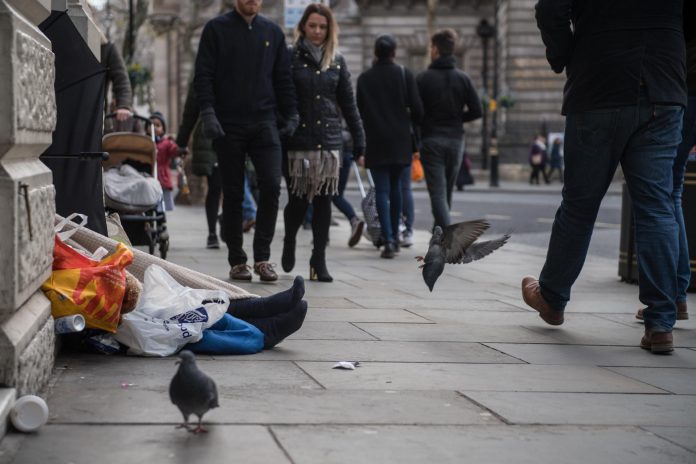Researchers are conducting the UK’s first major scientific trial to find out whether giving cash to homeless people is a more effective way of tackling poverty than traditional forms of help, The Guardian reports.
Anti-poverty campaigners have long believed that cash transfers are the most cost-effective way of helping people, but most studies have examined schemes in developing countries.
The new government-funded study, conducted by King’s College London (KCL) and homelessness charity Greater Change, will involve 360 people in England and Wales. Half will continue to receive help from frontline charities. The other half will receive extra help from Greater Change, whose workers will discuss their financial problems and then pay for items such as a deposit on a flat, outstanding debts, equipment for work, white goods, furniture or new clothes. They do not make direct transfers to avoid benefit cuts due to the influx of cash.
Professor Michael Sanders, who runs KCL’s experimental government unit, said:
“What we’re trying to understand is the boundary conditions for cash transfers. When does it work? For whom does it work? What are the amounts you need to give people in order to make it work?”
One of the first cash transfer schemes was developed in Mexico in 1997, and they have since been used around the world. But most of the evidence is from low- and middle-income countries, and they are opposed by politicians and the public, who often believe people will spend money unwisely. Last year, researchers from Canada found that giving 7,500 Canadian dollars (£4,285) to 50 homeless people in Vancouver was more effective than spending money on keeping them in shelters, saving about 777 Canadian dollars (£443) per person.
There have already been small studies in the UK, such as the Joseph Rowntree Foundation helping 12 homeless people in 2012, but Sanders said this is the first large-scale study. In addition to the Greater Change experiment, KCL researchers are working on four other similar studies. Over the past six years, Greater Change has helped around 1,300 homeless and homeless people in London and Essex.
“On average, every person we help saves around £35,000 [in public spending],” Jonathan Tan, the charity’s co-founder, said. Around half of their clients have been involved in the criminal justice system.
According to government figures, 13% of prisoners become homeless on release, increasing the risk of re-offending. Some have told the Observer that they re-offend in order to return to prison. In 2022, the re-offending rate in England and Wales was 33.2% for offenders released from custody or court order.
“We know that of our ex-offending cohort, who are prison leavers, fewer than 9% of them have reoffended 12 months on,” Tan said. The charity says 86% of the people it helps out of homelessness are not homeless 12 months later. The KCL study is a way of establishing whether or not that success comes from dealing with easier cases.
“We don’t think it is because they probably send us the more entrenched cases,” Tan said. “But we won’t know til the randomised control trial finishes.”
